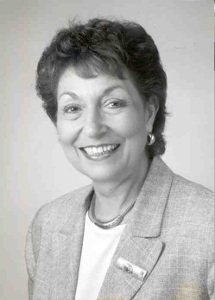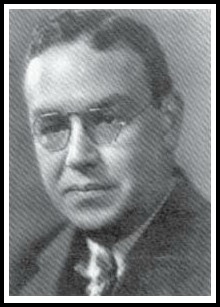The Freedom to Read Foundation (FTRF) is an American non-profit anti-censorship organization, established in 1969 by the American Library Association. [1] [2] The organization has been active in First Amendment-based challenges to book removals from libraries, and in anti-surveillance work. In addition to its legal work, the FTRF engages in advocacy and public awareness, such as its sponsorship of the annual celebration of "Banned Books Week".
The FTRF was established in 1969 by members of the American Library Association, including Judith Krug, Alexander Allain, and Carrie C Robinson. [2] [3] The organization was founded as "the American Library Association's response to its members' interest in having adequate means to support and defend librarians whose positions are jeopardized because of their resistance to abridgments of the First Amendment; and to set legal precedent for the freedom to read on behalf of all people". [3]
The FTRF was set up in conjunction with the ALA's Office for Intellectual Freedom instead of as a separate entity because of the work ALA was already doing to protect the First Amendment and intellectual freedom. [2] When the Foundation was being planned for and organized, Allain expressed concern in a letter to the Director of the Intellectual Freedom Office, Judith Krug, that ALA members would forget what the ALA has done and continues to do for intellectual freedom by covering themselves in this new umbrella of aid and assistance in the FTRF. [4] Allain felt that there should be overlap of both organizations so that the focus remained centered on intellectual freedom and could be worked on in harmony. [4]
Allain also felt that in forming the FTRF with the ALA, the Foundation would be able to benefit from some of the clout and connections that ALA already had. [4] He also suggested keeping policies between the two organizations similar because of his belief in the good work that the ALA does; he was continuously concerned about the ALA in his creation of the foundation and did not want members to see the foundation as a replacement but rather an addition to. [4]
The organization's charter describes four purposes for the Foundation, including: [3]
Promoting and protecting the freedom of speech and of the press;
Protecting the public's right of access to information and materials stored in the nation's libraries;
Safeguarding libraries' right to disseminate all materials contained in their collections; and
Supporting libraries and librarians in their defense of First Amendment rights by supplying them with legal counsel or the means to secure it.
The organization works through litigation, consumer education, and awarding grants to other individuals and entities working on similar projects. [3]
The American Library Association (ALA) is a nonprofit organization based in the United States that promotes libraries and library education internationally. It is the oldest and largest library association in the world, with 49,727 members as of 2021.

Judith Fingeret Krug was an American librarian, freedom of speech proponent, and critic of censorship. Krug became director of the Office for Intellectual Freedom at the American Library Association in 1967. In 1969, she joined the Freedom to Read Foundation as its executive director. Krug co-founded Banned Books Week in 1982.

The National Coalition Against Censorship (NCAC), founded in 1974, is an alliance of 50 American non-profit organizations, including literary, artistic, religious, educational, professional, labor, and civil liberties groups. NCAC is a New York–based organization with official 501(c)(3) status in the United States. The coalition seeks to defend freedom of thought, inquiry, and expression from censorship and threats of censorship through education and outreach, and direct advocacy. NCAC assists individuals, community groups, and institutions with strategies and resources for resisting censorship and creating a climate hospitable to free expression. It also encourages the publicizing of cases of censorship and has a place to report instances of censorship on the organization's website. Their annual fundraiser is called the Free Speech Defender Awards. The main goal of the organization is to defend the first amendment, freedom of thought, inquiry, and expression. NCAC's website contains reports of censorship incidents, analysis and discussion of free expression issues, a database of legal cases in the arts, an archive of NCAC's quarterly newsletter, a blog, and Censorpedia, a crowdsourced wiki. In fiscal year 2017, the organization earned a 95.93% rating by Charity Navigator, an organization that assesses the efficacy of nonprofits.
The Library Bill of Rights is the American Library Association's statement expressing the rights of library users to intellectual freedom and the expectations the association places on libraries to support those rights. The Association's Council has adopted a number of interpretations of the document applying it to various library policies.

Library circulation or library lending comprises the activities around the lending of library books and other material to users of a lending library. A circulation or lending department is one of the key departments of a library.

Banned Books Week is an annual awareness campaign promoted by the American Library Association and Amnesty International, that celebrates the freedom to read, draws attention to banned and challenged books, and highlights persecuted individuals. Held in late September or early October since 1982, the United States campaign "stresses the importance of ensuring the availability of those unorthodox or unpopular viewpoints to all who wish to read them" and the requirement to keep material publicly available so that people can develop their own conclusions and opinions. The international campaign notes individuals "persecuted because of the writings that they produce, circulate or read." Some of the events that occur during Banned Book Week are The Virtual Read-Out and The First Amendment Film Festival.

Forrest Brisbin Spaulding was an American librarian. He was named in the American Libraries article, "100 of the most important leaders we had in the 20th century" for his contribution to intellectual freedom in writing the Library Bill of Rights. He was a humanitarian who is remembered not only for his contributions to librarianship, but also for the positive influence he had on the communities in which he lived and worked. In a commentary on the play The Not So Quiet Librarian, by Cynthia Mercati, Humanities Iowa writes that "Spaulding's words and his life touched everyone who loved not just books but freedom of expression." While Forrest Spaulding is remembered for his contributions to librarianship, he began his career as a reporter. The State Library of Iowa biography mentions that while he spent some time as director of Peru's libraries and museums in 1920, "he was also a correspondent for the Associated Press. He is noted as saying that his 'efforts to report the news from that country gave him a bitter object lesson in censorship.'"
The New Jersey Library Association (NJLA) is a library organization located in Bordentown, New Jersey. It was established in 1890, and is the oldest library organization in the State of New Jersey. The NJLA began in 1890 with 39 members, and currently has over 1,700. The organization states on its website that it "advocates for the advancement of library services for the residents of New Jersey, provides continuing education & networking opportunities for librarians", and "supports the principles of intellectual freedom & promotes access to library materials for all".

Everett Thomson Moore was a Harvard University-educated librarian active in the Freedom to Read Foundation, which promoted intellectual freedom in libraries. He worked as an academic librarian at the University of Illinois, University of California, Berkeley, and University of California, Los Angeles, eventually joining UCLA's School of Library Service faculty in 1961. Moore is most famous for challenging California's attorney general on issues of censorship and intellectual freedom in libraries in the case of Moore v. Younger. In 1999, American Libraries named him one of the "100 Most Important Leaders We Had in the 20th Century".

Zoia Markovna Horn, born in Ukraine, became in 1972 the first United States librarian to be jailed for refusing to share information as a matter of conscience. Horn, an outspoken member of the American Library Association's Intellectual Freedom Committee, worked at Bucknell University in Lewisburg, Pennsylvania, in the early 1970s. Horn was jailed for nearly three weeks for contempt of court after refusing to testify for the prosecution in the 1972 conspiracy trial of the "Harrisburg Seven" anti-war activists.

Alexander Peter Allain was a lawyer and library advocate known for his work securing the freedom of expression. His career was devoted to securing First Amendment rights for libraries.
American Booksellers for Free Expression (ABFE) is the free speech initiative of the American Booksellers Association (ABA). ABFE is a non-profit organization whose mission is to protect and promote free expression in the United States. ABFE advises individuals who oppose book challenges and bans nationally and in local communities across the country. ABFE provides resources and education on the importance of free expression to booksellers, politicians, the press, and the public.

William Shepherd Dix was a scholar and librarian who had a 22-year career as Librarian at Princeton University in New Jersey, without a degree in library science. His contributions to the field of librarianship, however, are varied and notable, making him worthy of recognition in the American Libraries' 100 most important figures.

Clara Stanton Jones was the first African-American president of the American Library Association, serving as its acting president from April 11 to July 22 in 1976 and then its president from July 22, 1976, to 1977. Also, in 1970 she became the first African American and the first woman to serve as director of a major library system in America, as director of the Detroit Public Library.
Intellectual freedom encompasses the freedom to hold, receive and disseminate ideas without restriction. Viewed as an integral component of a democratic society, intellectual freedom protects an individual's right to access, explore, consider, and express ideas and information as the basis for a self-governing, well-informed citizenry. Intellectual freedom comprises the bedrock for freedoms of expression, speech, and the press and relates to freedoms of information and the right to privacy.
Librarianship and human rights in the U.S. are linked by the philosophy and practice of library and information professionals supporting the rights enumerated in the Universal Declaration of Human Rights (UDHR), particularly the established rights to information, knowledge and free expression.
Book censorship is the removal, suppression, or restricted circulation of literary, artistic, or educational material – of images, ideas, and information – on the grounds that these are morally or otherwise objectionable according to the standards applied by the censor. Censorship is "the regulation of speech and other forms of expression by an entrenched authority". The overall intent of censorship, in any form, is to act as "a kind of safeguard for society, typically to protect norms and values [...] censorship suppresses what is considered objectionable from a political, moral, or religious standpoint."
Deborah Caldwell-Stone is the Director of the American Library Association's Office for Intellectual Freedom. She works on projects "addressing censorship and privacy in the library".

Lucile M. Morsch was an American librarian who served as president of the American Library Association from 1957 to 1958. Morsch also worked as the Deputy Chief Assistant Librarian of Congress from 1953 to 1962.
Carrie Coleman Robinson was an African American educator and librarian. Robinson was a founding trustee of the Freedom to Read Foundation and a founder of the Alabama Association of School Librarians.